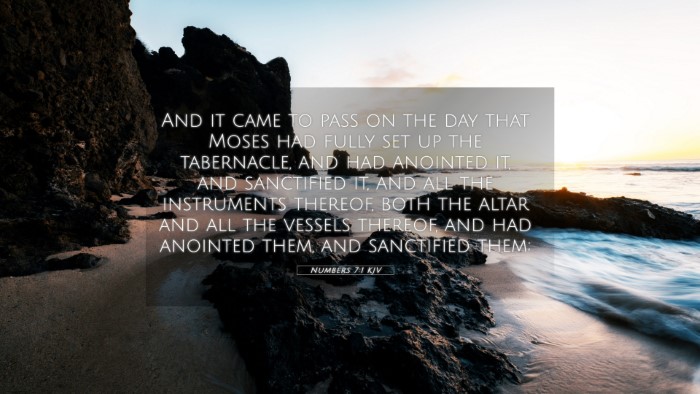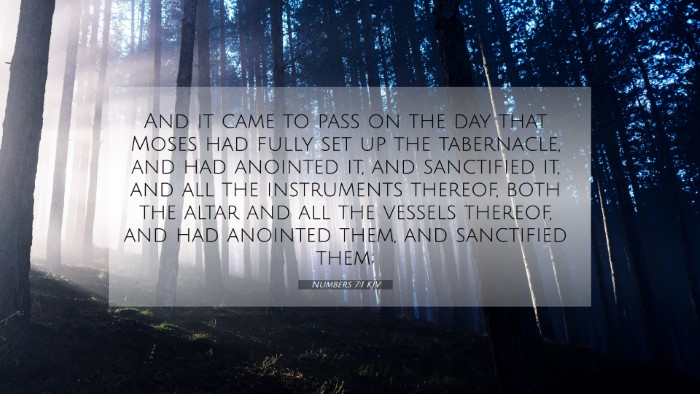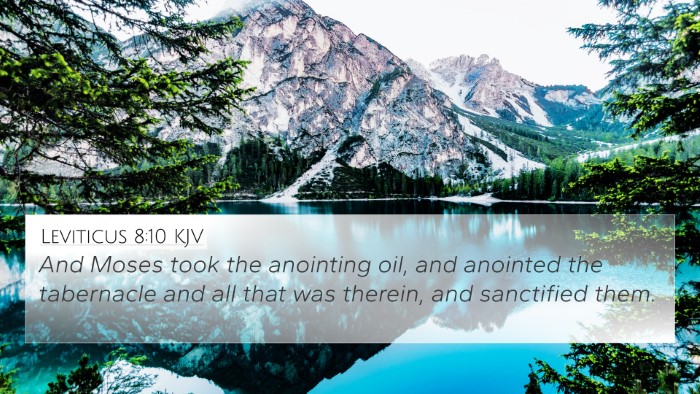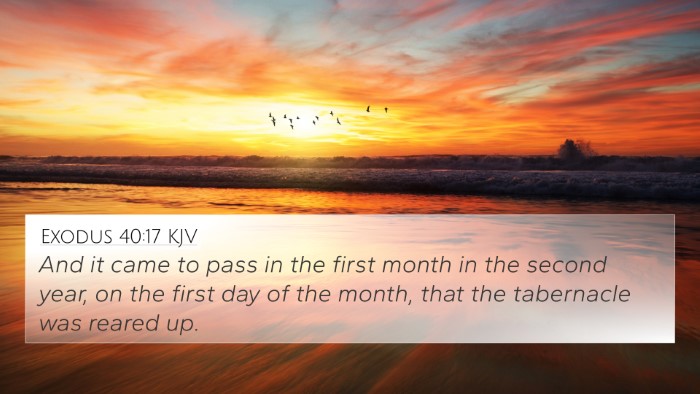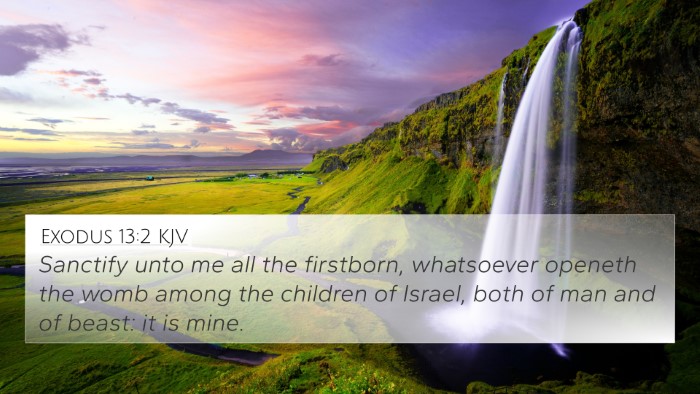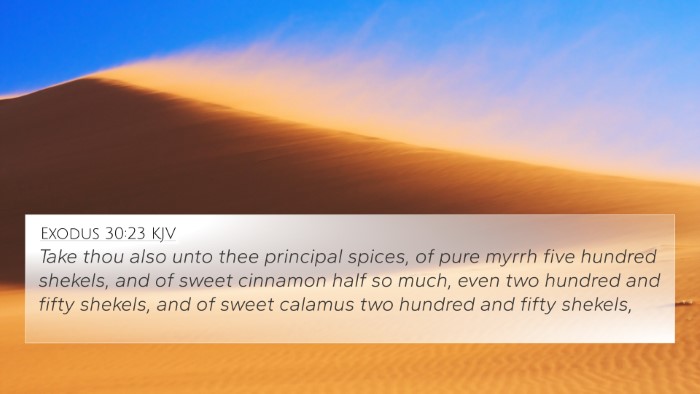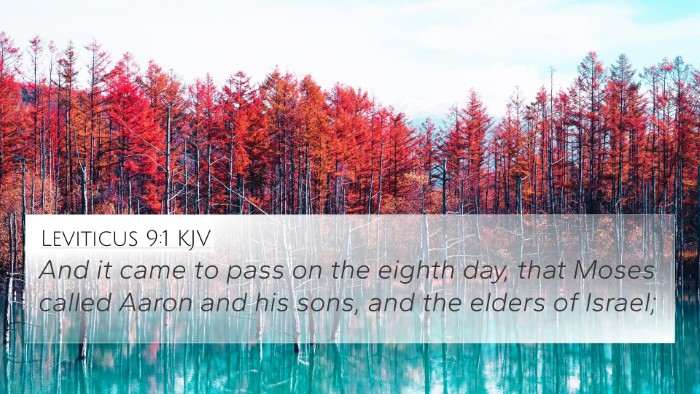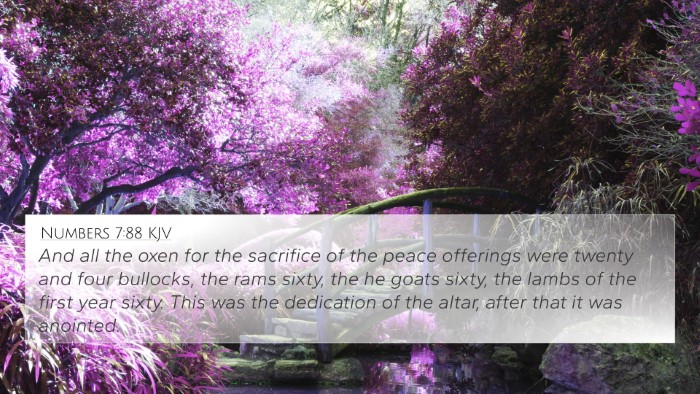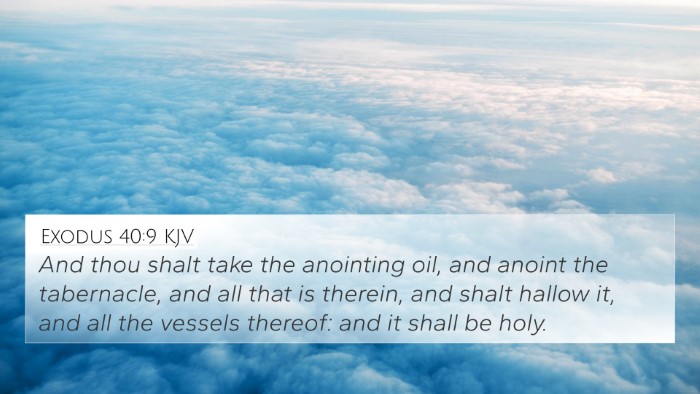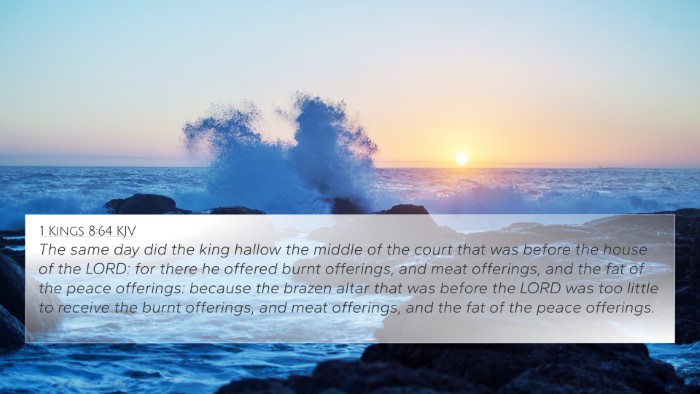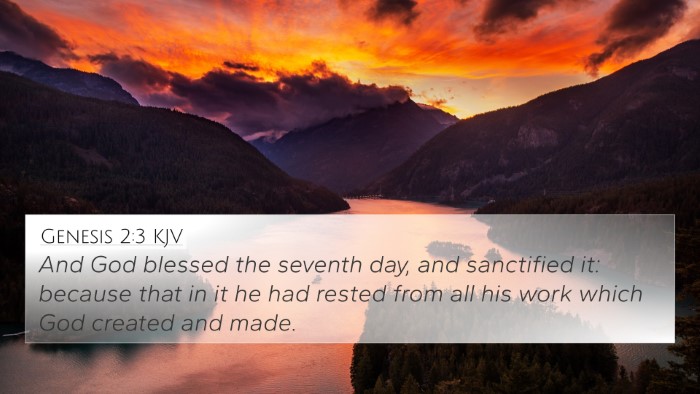Understanding Numbers 7:1
Numbers 7:1 states, "And it came to pass on the day that Moses had fully set up the tabernacle, and had anointed it, and sanctified it, and all the instruments thereof, both the altar and all the vessels thereof, and had anointed them, and sanctified them." This verse marks a significant moment in the establishment of the Israelite worship system and serves as a pivotal point in the narrative of the wilderness wanderings.
Context and Significance
In context, this event occurs after the Israelites have received the Law and constructed the Tabernacle as instructed by God. The setting up of the Tabernacle is not merely a physical act; it represents the establishment of God’s presence among His people. The sanctification of the Tabernacle and its instruments points to the importance of holiness and separation as central themes in the worship of God.
Commentary Insights
-
Matthew Henry: Henry emphasizes the careful preparations made by Moses. He indicates that this event reflects God's order in worship, where every detail of the Tabernacle's installation is significant. Henry also highlights the importance of anointing and sanctification, suggesting that the presence of God cannot dwell in an unholy place.
-
Albert Barnes: Barnes elaborates on the logistical aspects of the Tabernacle's setup. He notes the meticulous attention to detail as a reflection of reverence towards God. Barnes also comments on the anointing as a symbolic act that instills a sense of divine purpose in the Tabernacle, making it a suitable dwelling for God's presence.
-
Adam Clarke: Clarke focuses on the relational aspect of this event, suggesting that the sanctification process underscores the relationship between God and His people. According to Clarke, this preparation signifies God's desire to dwell among His people, highlighting His accessibility and intimacy.
Bible Verse Cross-References
This verse can be cross-referenced with the following passages, which enhance the understanding of its themes:
- Exodus 40:9-10: The consecration of the Tabernacle and its furnishings.
- Leviticus 8:10-11: The anointing of the altar and its significance.
- 1 Peter 2:5: Believers as living stones being built into a spiritual house.
- Hebrews 9:2: Description of the first tabernacle and its Holy Place.
- Psalm 132:7-8: The desire to dwell in God's habitation.
- Matthew 28:20: Jesus' promise of His presence among His people.
- Acts 7:44: The reference to the Tabernacle in the context of God's presence among His people.
Thematic Bible Verse Connections
The sanctification of the Tabernacle ties into broader themes in the Bible regarding holiness and divine presence.
Throughout Scripture, we see similar motifs:
-
Holiness of God: The act of sanctifying the Tabernacle parallels the holiness described in Isaiah 6:3, where the seraphim declare God's holiness.
-
God's Dwelling Among His People: The theme of God dwelling with His people continues throughout the New Testament, culminating in Revelation 21:3, where God dwells among men.
-
Preparation for Worship: Just as the Tabernacle was set apart, believers are called to prepare themselves for worship, reflecting the personal holiness found in Romans 12:1.
Tools for Bible Cross-Referencing
To delve deeper into the connections presented in the Bible, individuals can utilize the following resources:
- Bible Concordance: A systematic listing of words and phrases found in the Bible, allowing for easy location of related verses.
- Bible Cross-Reference Guide: Tools designed to help users discover relationships between different texts.
- Bible Chain References: A method for exploring topics and themes sequentially linked through scripture.
Conclusion
The verse Numbers 7:1 encapsulates the essentiality of God's presence throughout the narrative of Israel, while also establishing pivotal themes that resonate across the entire biblical text. By applying effective cross-referencing techniques and engaging with the insights offered in public domain commentaries, one can uncover the rich tapestry of connections found in the scriptures. This verse not only invites reflection on holiness but also encourages a deeper understanding of God's desire to dwell among His people throughout both the Old and New Testaments.

